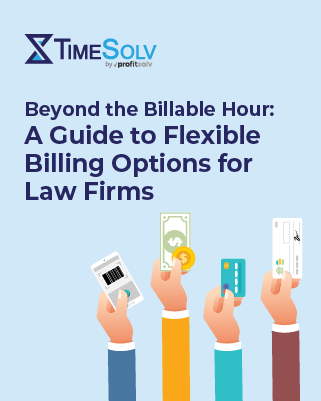Can I bill a client for “basic” legal research?


Thinking about billing a client for “basic” legal research, or wondering if it’s ethical to do? The short answer: yes, you can usually bill for basic research—but not without providing some context.
As legal clients get more educated about how attorneys bill for their time, this question is coming up more often. Clients may wonder why their lawyer is billing for something that feels quick, obvious, or easy enough to Google.
But as you know, basic legal research still supports your ability to make the most informed decisions, reduce risk, and apply the right law to the right case.
The real challenge here isn’t finding out whether you can bill for legal research—in many cases, you can. It’s determining how to bill for it transparently and fairly, so clients understand the value you’re providing.
Below, we break down the key factors to consider when billing for basic legal research and how to avoid friction with clients.
Your Duty of Competence and What It Means for Billing
Before you decide whether a piece of legal research is billable, it helps to look at your ethical baseline: your duty of competence.
What Is Your Duty of Competence?
Most state bars and the American Bar Association’s Model Rules require lawyers to provide representation that’s reasonably thorough, skillful, and well-prepared. ABA Model Rule 1:1 puts it simply:
“A lawyer shall provide competent representation to a client. Competent representation requires the legal knowledge, skill, thoroughness and preparation reasonably necessary for the representation.”
So how does this factor into how attorneys bill for basic legal research?
Competence isn’t a fixed standard. The ABA clarifies that the level of legal knowledge you’re expected to have depends on the “relative complexity and specialized nature of the matter.” Sometimes, a general practitioner’s understanding is enough. Other times, the issue requires deep expertise in a particular field of law.
When Is Research Considered Basic or Billable?
Not all research is created equal. Some preliminary work may be part of the competence you’re expected to bring to the table before you accept an engagement. Other research, especially when the law is complex, unsettled, or requires careful application to new facts, is both necessary and appropriate to bill.
Competence doesn’t answer the billing question outright, but it provides the right lens: Clients shouldn’t pay for you to learn the basics, but they should pay for the research required to competently solve their specific problem.
Check Your Billing Agreement Before Charging for Research
Before you bill for any research, especially the kind a client might label “basic,” start with the billing agreement. Many clients, particularly larger corporate or institutional ones, require you to spell out exactly what can and cannot be billed. These terms often restrict billing for issues considered “routine,” “elementary,” or commonly known to a lawyer practicing in that jurisdiction.
It’s worth revisiting those billing terms before you add anything that could be considered basic research to an invoice. If anything is unclear, have a quick conversation with the client to align expectations and avoid surprises later.
In many cases, these agreements treat basic procedural questions, like filing rules or standard deadlines, as non-billable. But some agreements go further to restrict what and how lawyers charge for research and exclude other foundational knowledge they expect counsel to have, such as major state supreme court decisions in a core practice area.
The takeaway: Your billing agreement may draw a line between essential, case-specific research (billable) and baseline knowledge clients assume you already have (non-billable). Make sure you know where that line is before you bill.
Billing for research is just the start.
Download Beyond the Billable Hour now to explore more flexible billing strategies that strengthen your firm to charge smarter and build your bottom line.
Explain the Value: Show Why Your Research Goes Beyond the Basics
How do attorneys bill transparently for basic research without getting client pushback? One of the easiest ways is ensuring your billing entries show why the work wasn’t basic. Clients don’t always understand how complex an issue becomes once you apply it to their specific facts.
A matter that looks straightforward on the surface may be anything but once the details come into play. Take statutes of limitation, for example. If a unique factual wrinkle affects when the clock started ticking, the research needed may be far from routine.
But if your billing entry simply says “research statute of limitations,” the client may assume you’re charging for something you should already know.
Instead, be specific about the nuance that required deeper work. For example:
“Research applicability of state statute of limitations, including potential tolling arguments based on client’s discovery of property defect five years after purchase.”
This kind of detail shows the client exactly what they’re paying for and why the research was necessary for their case. Clear, transparent entries help clients see the value in your work and reduce unnecessary billing disputes.
Whether the Research is Basic or Complex, Billing Should Be Simple
To help you capture more of your billable work (research included), download 7 Ways to Increase Billable Time—it’s a practical resource for boosting profitability through better habits and smarter tools.
Transparent billing for legal research becomes much easier when you can show clients exactly what you worked on and why it matters. With TimeSolv’s powerful time-tracking and customizable billing entries, you can clearly document the nuance behind your research and show clients the real value of the time you invest.
When you’re ready to track every billable minute with precision and justify every entry to clients with data, try TimeSolv. Our automated solutions simplify how attorneys bill. From invoicing and collections to expense tracking and reporting, you get big-firm efficiency in a solution built for firms of every size.
It’s legal billing software that helps you get paid faster, charge confidently, and manage every minute smarter. And the best part? You can start your free trial today.
Frequently Asked Questions: Billing Legal Research
How do attorneys bill clients for legal research?
Attorneys bill clients for legal research primarily based on the time spent, typically at an hourly rate, or as part of a fixed fee for a specific matter. The key is transparency and justification: billing entries should clearly explain the complexity and necessity of the research, especially if it extends beyond what might be considered basic legal research.
Can lawyers charge for basic legal research they should already know?
Whether lawyers can charge for basic legal research often depends on the specific billing agreement with the client and the attorney’s duty of competence. Generally, clients may balk at paying for research on issues considered fundamental to a lawyer’s practice area. However, research into unique factual scenarios or evolving legal precedents, even if “basic” in concept, is often billable if clearly justified.
How can I ensure clients understand legal research charges?
To ensure clients understand how lawyers charge for research, clearly define the scope of billable research in your initial engagement agreement. When documenting time, make sure your billing entries are detailed and describe why the research was necessary and complex, rather than simply stating “legal research.” This transparency builds trust and helps justify your charges.
Does legal billing software help manage research charges?
Yes, legal billing software like TimeSolv is invaluable for managing and justifying research charges. It allows for detailed time tracking, enabling attorneys to accurately record time spent on specific research tasks. Customizable billing descriptions help articulate the value of the research to clients, streamlining how attorneys bill and reducing disputes over research time.
wherever you do.
TimeSolv in action.





